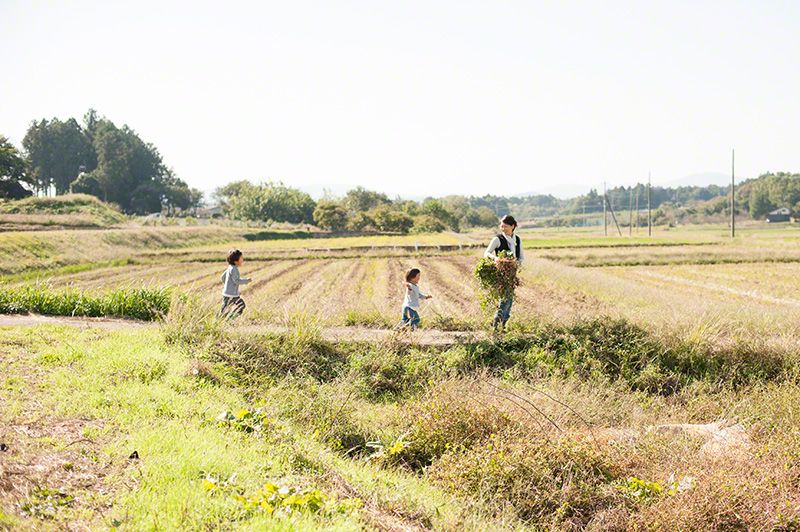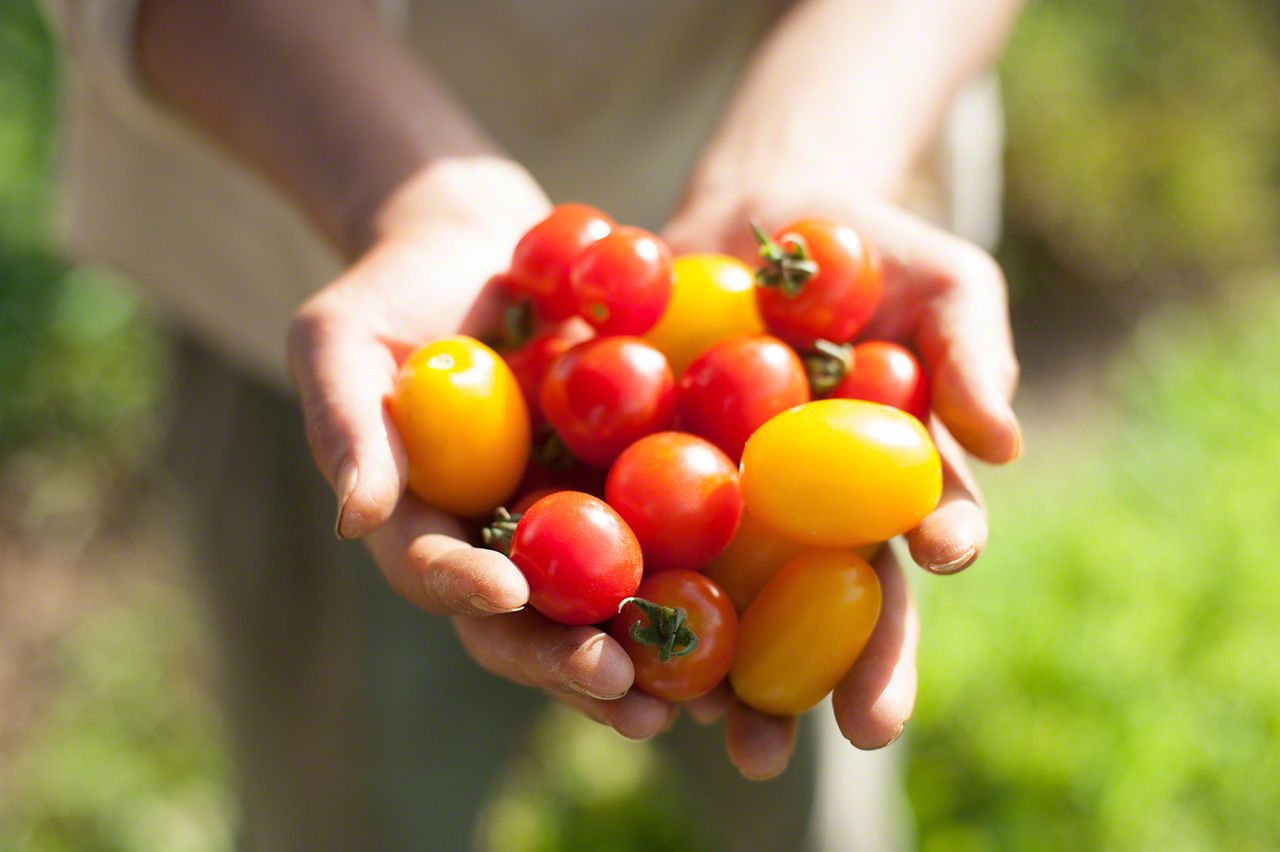
A Family Farm (Photos)
Culture- English
- 日本語
- 简体字
- 繁體字
- Français
- Español
- العربية
- Русский
The Tanaka family’s farm is an hour’s train journey northeast from Tokyo, in Ishioka, Ibaraki Prefecture. The father, Yasuyuki, graduated from an agricultural university and then worked as a volunteer overseas. After he returned to Japan he came to Ishioka in 2000, where he aimed to establish himself as a farmer. The city is known for its many successful organic farms. Now Yasuyuki grows two hectares of vegetables without using chemical fertilizers or pesticides.
Yasuyuki and his wife Kumiko have three children. Kumiko worked at a French restaurant in Tokyo before moving to Ishioka in 2003 to try her hand at agriculture. There she met Yasuyuki, and they were soon married. As well as assisting him with farming, she applies her culinary experience to making bread products with the vegetables they grow. These are prepared using yeast from a carrot culture and sold to local restaurants. In August 2017, the Tanakas opened their own shop and café called Petrin. As well as selling bread, they plan to offer dishes based around their vegetables.
Far from Tokyo
In the fields, Kumiko is working with her younger son, Hitoshi, strapped to her back. It looks like tough work, but I find it difficult to look away. There is some ineffable quality in the scene of earth, greenery, and the sweat of Kumiko’s efforts. Yoshiyuki and Ayana, her older son and daughter, do their best to help with the farming nearby, getting covered in mud in the process. We seem very far from Tokyo. The fields are teaching the children things that they could not learn in the capital’s schools. I smile at their carefree and gentle expressions.
For dinner, Kumiko prepares dishes using their vegetables in the small kitchen of their converted kominka house. The children join in, turning the just-harvested tomatoes into puree. They also find time for drawing pictures in between lending a hand. When the food is ready, the dishes are carried one by one to the low dining table. Then the family gathers around, each pressing their hands together and giving thanks for the food. Itadakimasu! This is no luxurious banquet, but there is something special about eating one’s own vegetables.
 From left: Yasuyuki and younger son Hitoshi; a breakfast spread prepared by Kumiko; Hitoshi is on Kumiko’s back all through the harvest.
From left: Yasuyuki and younger son Hitoshi; a breakfast spread prepared by Kumiko; Hitoshi is on Kumiko’s back all through the harvest.
Overcoming Adversity
It has not always been plain sailing for the Tanakas. In 2011, they had to deal with the effects of the Fukushima nuclear disaster, which took place to the north of Ibaraki. Rather than using chemicals, Yasuyuki stresses the importance of enriching his soil with plenty of fallen leaves. He felt unable to do this in 2011, however, as information about the radiation finding its way into his mulch material of choice was contradictory and confusing.
 From left: The importance of good soil; proudly displaying some fresh vegetables; taking a break.
From left: The importance of good soil; proudly displaying some fresh vegetables; taking a break.
Their crops also suffered reputational damage. More than half of the customers they had carefully built up from 2006 no longer wanted to buy Ibaraki vegetables. “At the time there seemed to be no way of escaping the effects of the nuclear accident, and we thought about moving to new land,” Yasuyuki says. His burning desire to bring better vegetables to more people got him through the difficult time. As surveys proved that crops were unaffected by fallout, new customers steadily appeared.
The Tanaka family’s teamwork creates delicious vegetable cuisine. Now they dream of sharing it at their newly opened café.
 Ayana is always full of energy.
Ayana is always full of energy.
(Originally published in Japanese on January 2, 2018. Text and photographs by Motono Katsuyoshi.)

Okra plants create a perfect-sized tunnel for little ones.

A box holds Hitoshi until the time comes to fill it with produce.

The kids make the most of their chances to be field explorers.

A path through the family farm.

Hitoshi often accompanies a parent into the fields while they work.

A playful moment in between farm chores.

Unloading a crate and heading into the field with Hitoshi.

Plenty of chances to play indoors as well.

Taking a quick break before lunch to create a new masterpiece.

Fresh-picked vegetables with their Ultraman guards.

A salad made with “gōya” bitter gourd.

Yoshiyuki and Ayana help mom make a tomato puree.









